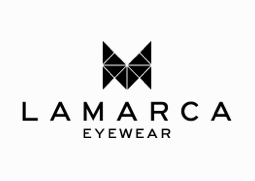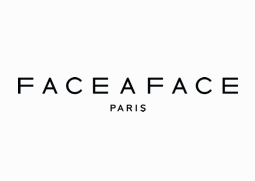Vision insurance often plays a pivotal role in healthcare, focusing on eye health, including preventive measures, eyewear, and treatments. Grasping the coverage details of vision insurance and its distinction from health insurance can lead to significant savings and better eye health management.
Vision insurance providers typically cover eye exams, eyewear, lens options, and surgery discounts. This post will explore vision insurance in the United States, outline typical coverage areas, and address common questions regarding insurance policies.
What Vision Insurance Entails
Vision insurance is a specialized health benefit designed to cover routine eye care and eyewear and sometimes offers discounts on vision correction surgeries. It is distinct from comprehensive health insurance, emphasizing preventive eye care and cost reduction for eyewear and eye exams.
Its focused approach brings several advantages. Individuals can tailor their healthcare portfolios to better match their needs and financial situations by separating eye care from broader health coverage. For example, a person with perfect health but poor vision might find great value in a vision plan without needing an expensive, comprehensive health plan.
One of the primary aims of vision insurance is cost management. Eye care, particularly purchasing new eyeglasses or contact lenses, can be expensive, and these costs can accumulate over time, especially for families. Vision insurance helps mitigate these expenses through coverage and discounts, making routine eye care and eyewear more affordable. This can encourage individuals to seek regular eye examinations and update their eyewear as needed, leading to better overall eye health.
Coverage Under Vision Insurance
- Eye exams: Most plans include coverage for annual or bi-annual eye exams, essential for early eye disease detection.
- Eyewear: Benefits often extend towards purchasing glasses (including frames and lenses) or contact lenses, covering a set amount or a percentage of the cost, with specific allowances for different components.
- Lens options: Coverage may also be available for lens options like anti-glare, transition lenses, and progressives, typically at an extra cost.
- Vision correction surgery discounts: While direct coverage is rare, many plans offer discounts on surgeries like LASIK.
Common Questions About Vision Insurance
Q: How is vision insurance different from health insurance?
A: Vision insurance is a supplemental plan focusing specifically on eye health, offering routine care and eyewear benefits. Health insurance covers a broader spectrum of medical care, including treatments for illnesses and injuries. Eye care related to medical conditions or injuries may be covered under health insurance.
Q: When can I start using my vision insurance?
A: There might be waiting periods for certain benefits, especially for eyewear or elective surgeries. Routine eye exams are typically available as soon as the plan is active.
Q: Is investing in vision insurance advisable?
A: It depends on your personal or family eye care needs. If you frequently need new eyeglasses, contact lenses, or eye exams, vision insurance can offer considerable savings. Paying out-of-pocket could be more cost-effective for those with minimal eye care needs.
Q: How do I select a vision insurance plan?
A: Evaluate the plan based on covered services, provider options, premiums, co-pays, and deductibles. Consider your eye care requirements, including how often you need exams and changes in your vision correction needs.
Q: Are there alternatives to vision insurance?
A: Yes, discount vision plans are available. These plans offer service and product discounts for a membership fee. Compared to traditional insurance, these can be an economical choice for those with sporadic eye care needs.
Q: Is LASIK covered under Vision Insurance?
A: Not typically. LASIK surgery and other vision correction surgeries are often considered elective procedures and are not typically covered under standard vision insurance plans.
However, many vision insurance providers recognize the demand for LASIK and offer discounts or negotiated rates for the surgery through specific programs or network providers. It’s important to review their vision insurance benefits carefully and consult with their insurance provider to understand any available discounts or coverage options for refractive surgeries.
Q: What Insurance does McCauley Celin Eyecare Associates accept?
A: We at McCauley Celin Eyecare Associates want to make this process as simple as possible because we understand how confusing it can be to sort through your insurance and payment options. Here is a list of our current insurance partners:
- AETNA
- Blue Cross/Blue Shield
- Cigna
- Davis Vision
- Eyemed
- Healthcare America
- Highmark
- Medicare
- National Vision Association (NVA)
- Tricare
- UPMC
- UPMC Vision Advantage
- United Healthcare
- Vision Benefits of America (VBA)
- Vision Service Plan (VAP)
Navigating Vision Insurance
Vision insurance is a valuable resource for maintaining optimal eye health and mitigating the costs associated with eyewear and eye care services. By understanding coverage details and addressing common questions, individuals can make informed choices about the suitability of vision insurance for their needs and how to select an appropriate plan. Always carefully review any insurance policy and assess your eye care requirements to receive the best possible coverage and value. We at McCauley Celin Eyecare Associates know that navigating payment and insurance options can be daunting. Our staff can collaborate with your medical and vision insurance companies to offer you top-notch eye treatment. Book an appointment with us today to start navigating your eyecare journey!














